Features
Tied To The Whippin' Post
Allman Brothers Albums Ranked Worst To Best
by Christopher Thelen
When you think “Southern rock” or “’70s rock,” many bands may come to mind, but there was one who led the charge directly out of Macon, Georgia: The Allman Brothers Band. Founded by guitarist Duane Allman and his brother Gregg on keyboards and vocals, their two-guitar, two-drum sonic attack rewrote the rules for rock music, and despite numerous tragedies afflicting the band, they somehow managed to keep the music going up until Gregg Allman’s death in 2017.
The Allman Brothers Band’s discography is vast, having provided listeners with nearly 50 years of music. But, unlike many other “worst to first” lists I’ve tackled, they released some live albums which are seminal to the genre, so they can’t simply be ignored.
To approach the discography, I’m naturally not focusing on the numerous compilation discs released over the years (including the outstanding box set Dreams). Likewise, any live album released to reflect the band’s past doesn’t make the cut; rather, the albums that show the band’s progression are highlighted. So, while At Fillmore East makes the cut, Live At Ludlow Garage does not. We can debate this for hours on end over a few cold ones, and I would probably agree with every point you could make for their inclusion.
With that in mind, let’s grab some fruit off the tree and take a big bite, shall we?
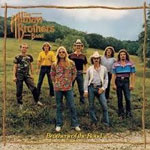 18. Brothers Of The Road (1981)
18. Brothers Of The Road (1981)
Less an Allman Brothers album than a collective of musicians and guests, this was an absolute bottom-of-the-barrel effort. For starting off as a blues band with more than a hint of jazz to their sound, they had now become a sterile, unremarkable Southern rock band. This was the band’s final effort for nearly a decade. Worth Checking Out: “The Judgement,” “Things You Used To Do”
17. Reach For The Sky (1980)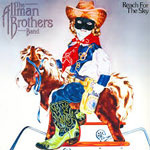
Their first release on Arista following the collapse of Capricorn Records, this release is less of an Allman Brothers album than it is an AOR effort – and while it’s at least listenable, it suffers significantly as a result. Another half-hearted instrumental (“From The Madness Of The West”), another song which recycles licks from “Ramblin’ Man” (“Hell & High Water”), Dickey Betts and crew simply were treading water by this time. And the addition of synthesizers to the forefront of the sound is an unspeakable sin. Worth Checking Out: “Angeline,” “So Long”
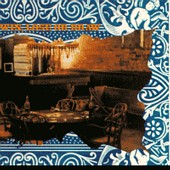 16. Win, Lose Or Draw (1975)
16. Win, Lose Or Draw (1975)
An extremely disjointed effort, which doesn’t sound or feel like most members of the band’s hearts were really into the project. (Later admissions from members that the band was unraveling at the time shed a lot of light into how this album ended up the way it did.) With some songs repeating musical ideas (“Just Another Love Song” borrows heavily from “Ramblin’ Man” at times) and the overall performances just not being as tight as the earlier efforts, this one is a major disappointment. Worth Checking Out: “Win, Lose Or Draw,” “High Falls”
15. Where It All Begins (1994)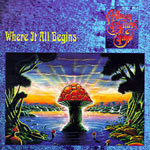
Not even five years after their second reunion, this disc features Gregg Allman and crew just sounding like they’re going through the motions. The music isn’t bad, but it’s also not as exciting as other albums in their catalog. The final studio album to feature Dickey Betts, it would have been nicer had he been able to go out on a higher note than this one. Worth Checking Out: “Mean Woman Blues”
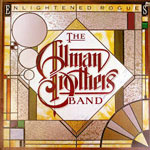 14. Enlightened Rogues (1979)
14. Enlightened Rogues (1979)
Three years after their acrimonious breakup, the Allman Brothers Band (with a few lineup changes) returned with this effort. While it was an improvement on their previous release in some ways, in others it was akin to trying to put the genie back in the bottle after you had poured the contents out. Many of the efforts sound forced, like the instrumental “Pegasus.” It’s when they settle into a nice blues groove that this one begins to fire on all cylinders…but those moments are too few. All in all, the magic just ain’t there. Worth Checking Out: “Can’t Take It With You,” “Need Your Love So Bad”
13. Shades Of Two Worlds (1991)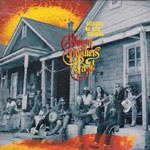
After the rebirth of the Allmans in 1990, why this album sounds so disjointed makes it a major disappointment. Once again sounding too much like AOR fodder on songs like “Bad Rain” and “Desert Blues,” it often seems like the band has thrown away the blueprint of who they were at the beginning of their career. But when Gregg Allman takes over the songwriting on “End Of The Line” and “Get On With Your Life,” it’s proven that there is still life within the band – though why they didn’t let him take the reins more often than Dickey Betts by this point is a complete mystery. Betts, along with Warren Haynes, were able to come up with one or two good efforts, but they were too few, too late to save this one. Worth Checking Out: “Get On With Your Life,” “Midnight Man,” “Come On In My Kitchen”
![]() 12. Peakin’ At The Beacon (2000)
12. Peakin’ At The Beacon (2000)
The band was well-known for their multiple-night runs at this New York theater, but this release, while technically proficient, lacks any real emotion. Yes, opening with three songs from their early days is an outstanding touch, but things slide downhill from that point on. It’s not that they choose lesser-known material, but that the often sound like they’re merely going through the motions (and seeing they were having issues with Dickey Betts at the time, that could well have been the case). For a band well-known for their live shows, this really disappoints…this was the best they could cull from a 13 night run? Worth Checking Out: “Ain’t Wastin’ Time No More,” “Black Hearted Woman,” “Seven Turns”
11. An Evening With The Allman Brothers Band: First Set (1992)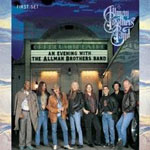
It’s not a huge secret that, like many bands of their era, the Allmans were most comfortable on stage, not in the confines of a studio. And while this is a passable live disc with some absolutely amazing performances – why they didn’t do a set of acoustic numbers like “Midnight Blues,” I’ll never understand – it does come at the price of having two decades pass, so some songs have taken a slightly different (and, to my old ears, uncomfortable) new direction, like “Blue Sky.” Worth Checking Out: “Southbound,” “Midnight Blues,” “Nobody Knows,” “Dreams”
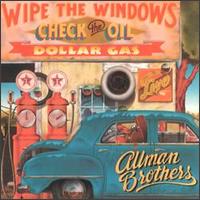 10. Wipe The Windows, Check The Oil, Dollar Gas (1976)
10. Wipe The Windows, Check The Oil, Dollar Gas (1976)
Anyone who expected this second live album from the Allmans to be At Fillmore East Mk. II was going to be sorely disappointed. This was a much different band than the one who recorded that first live set just a few years prior; they were down two key members, and they sounded weary of everything. This isn’t to say there aren’t good performances on the album, but aside from a 17-minute “In Memory Of Elizabeth Reed,” the free-form jamming days seem to be decades in the rear-view mirror. This is a disc that has its moments, and is notable for being a snapshot of a band which, for all intents and purposes, no longer existed by the time this came out. Is it great? No…but it’s also not the complete landmine that some would want you to believe. Worth Checking Out: “Southbound,” “Come And Go Blues,” “Can’t Lose What You Never Had”
9. An Evening With The Allman Brothers Band: 2nd Set (1995)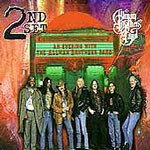
Three years after the first set hit store shelves, the companion album finally saw the light of day…and it definitely showed off a band with more life in it. From their spin on newer songs in their repertoire to the musical chances they took – acoustic “In Memory Of Elizabeth Reed”! - this proved to be the superior release of the two, and was one of the better live albums in their catalog. Admittedly, I’d have liked to have heard more of the older songs, but this proves to be a fairly decent balance, and it works well. Worth Checking Out: “Back Where It All Begins,” “In Memory Of Elizabeth Reed”
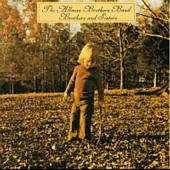 8. Brothers And Sisters (1973)
8. Brothers And Sisters (1973)
Following the death of Duane Allman in 1971, bassist Berry Oakley fell into a downward spiral of depression, aggravated by alcohol and drug abuse. His death just over a year after his bandmate’s in November 1972 in a motorcycle accident was the latest tragedy to befall the band, with Lamar Williams stepping into the bass seat. This disc signifies a noticeable shift in the writing style of the band; while they were still cranking out rockers dripping with the blues, there was more of a country influence brought to the fore by guitarist Dickey Betts. Whether it was the stylistic shift, the loss of another core member or just having to live up to the expectations they had built with their first four albums, this one is a minor disappointment – though it contains some of their most recognizable (and enjoyable) songs. Worth Checking Out: “Ramblin’ Man,” “Jelly, Jelly,” “Jessica”
7. One Way Out (2004)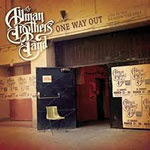
Taken from another run at the Beacon Theatre in New York (this run from 2003), it almost seems fitting that the final official Allman Brothers Band album would be a live effort. Unlike their previous live album from the Beacon, this set features the whole band firing on all cylinders (although Gregg Allman’s vocals are nowhere near as strong as they once were). This two-disc set has a very nice mixture of old and new, and while there is most definitely a change in sound with Derek Trucks taking over Dickey Betts’s position in the band (complementing Warren Haynes on guitar), it is not an unwelcome change, and was yet another strong suggestion that the band still had a lot to offer their fans. It does make the listener feel nostalgic for the days of Duane Allman, albeit in a good way. A nice coda to their career, though I’m sure there was much more they had to say musically. Worth Checking Out: “Wasted Words,” “Instrumental Illness,” “Dreams”
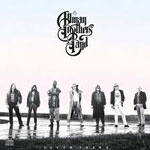 6. Seven Turns (1990)
6. Seven Turns (1990)
It would be a stretch to say that this disc – the band’s first in nine years – was a return to form, but it was a major improvement over the product they were putting out after their first reunion from 1979 to 1981. Gone are the crappy ‘80s synthesizers, in came musicians like Warren Haynes and Allen Woody. The end result is a much more solid effort that does occasionally harken back to the band’s early days while respectfully moving into the present-day. Even the return of the instrumental is a welcome addition to this disc. I’m actually ashamed that I haven’t listened to this one more often than I currently do. Worth Checking Out: “Low Down Dirty Mean,” “Loaded Dice,” “Seven Turns,” “True Gravity”
5. Hittin’ The Note (2003)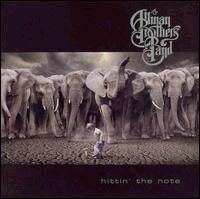
What turned out to be the final studio effort from the Allman Brothers Band (and the only one to not feature Dickey Betts) starts off fairly slow, but quickly finds its groove. You can definitely hear the scars of time in Gregg Allman’s vocals on “Old Before My Time,” but while it’s stylistically not similar to the material he and Duane cranked out in their early days, it is a powerful portrait of the band after nearly 35 years of highs and lows. This one was undoubtedly their best release since their initial break-up in 1976…a pity that it is one of their least-known albums. If anything, this disc makes me a little sad, because it proved the band still had a lot of gas left in the tank creatively. Worth Checking Out: “Who To Believe,” “Woman Across The River,” “Old Before My Time”
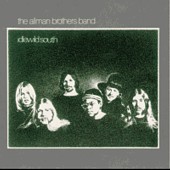 4. Idlewild South (1970)
4. Idlewild South (1970)
This album has been touted by some online vendors as the first great album of the 1970s…and while it does contain some of the band’s best material, the second half of the disc is not quite as strong as the first. It is, by no means, a bad album – who in their right minds would say “In Memory Of Elizabeth Reed” was a bad song? - but coming off the sonic rush of their debut, they were bound to hit a speed bump, albeit a small one. This album is notable for featuring the only lead vocal performance of Berry Oakley on “Hoochie Coochie Man.” (Also worthy to note that the “super deluxe edition” released in 2015 included the entire Live At Ludlow Garage 1970 album, including the version of “In Memory Of Elizabeth Reed” which had to be cut from the initial release.) Worth Checking Out: “Midnight Rider,” “Revival,” “In Memory Of Elizabeth Reed”
3. At Fillmore East (1971)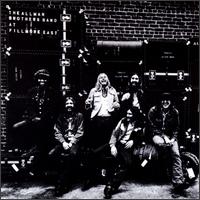
Egads…another sacrilege committed by yours truly! Considered to be one of the seminal live albums ever committed to tape, this collection of tunes features the band at their creative highs as well as their self-indulgent lows. This set (which has been re-released ad nauseam over the years) definitely shows that the Allmans were more comfortable in a live setting than trapped in the confinements of a studio, and tracks like “Whipping Post” allow them to creatively stretch out their legs and let their freak flag fly. However, there are times when these extensions feel like they’re overkill piled on top of overkill; “You Don’t Love Me” passes its natural end point several times, only to have someone in the band continue the song in a slightly different vein needlessly. Look, I get this was the era of the free-form jam – having listened to enough Grateful Dead concerts, I’m quite familiar with the concept – and done correctly, it can be a joyous thing. But for all this album’s successes, it does sometimes show there is such a concept as too much of a good thing. Worth Checking Out: “Statesboro Blues,” “Hot ‘Lanta,” “In Memory Of Elizabeth Reed”
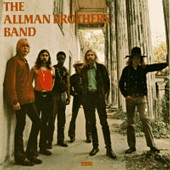 2. The Allman Brothers Band (1969)
2. The Allman Brothers Band (1969)
These days, it seems impossible that this record sold less than 35,000 copies on its initial release. But, in fairness, it was different than a lot of what you’d hear on the radio around that time: it wasn’t psychedelia, it wasn’t straight-out rock and roll. What it was, was the worlds of jazz and blues batter-dipped with a generous helping of Southern influences…and what it produced could well be one of the finest debut albums ever released. (The record, initially produced by Adrian Barber, was later re-mixed by Tom Dowd for the compilation release Beginnings; both versions are available on the deluxe edition of this CD.) Worth Checking Out: “Trouble No More,” “Dreams,” “Whipping Post”
1. Eat A Peach (1972)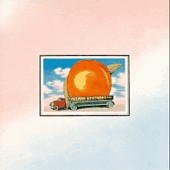
Out of one of the darkest tragedies to befall the band – namely, the death of Duane Allman in a motorcycle accident on October 29, 1971 – came what could be rightfully considered the band’s masterpiece. Comprised of live tracks left over from their Fillmore East concerts, the final songs recorded with Duane Allman’s participation and new songs following his death, the legacies old and new of the Allman Brothers Band come together in an amazingly powerful release. The initial album had “Mountain Jam” split across two sides of the two-record set…but it seems incredibly fitting that the CD ends with “Little Martha,” one of Duane Allman’s final performances. Worth Checking Out: “Ain’t Wasting Time No More,” “Melissa,” “Blue Sky,” “Little Martha”